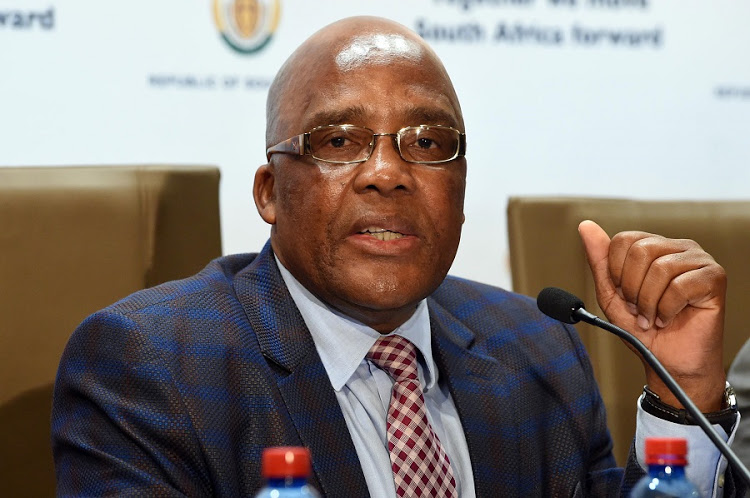SOUTH AFRICA (SA)’s Home Affairs minister, Aaron Motsoaledi wants foreign pastors banned from officiating nuptials in SA as part of new rules to stamp out fraudulent marriages that he says are used to bypass immigration laws.
This proposal is one of a raft of new changes being made to the regulatory framework by home affairs, which are due to be published for public comment before a law is passed to close the gaps in the current legislation.
The changes would also see issues relating to marriage split from immigration affairs.
Motsoaledi said in the current immigration law, the fastest and easiest of the route to get permanent residency and citizenship is through marriage to a South African.
He said fraudulent marriages by foreigners were a big problem that his department encountered every year, with more than
2 000 of them reported and that 99 percent of these were driven by a motive to get SA citizenship.
He said in some instances pastors are brought in from another country to get people married in SA and thereafter return to their home country.
“In our new draft Marriage Amendment Bill that we will soon take out to the public, we no longer allow anybody from any place that is not from SA [to do that]…we want to put it in the law that we can only recognise your marriage and give you a certificate if a priest who married you is a South African or by a home affairs official.
“There are many of the pastors … when we tried to contact them, they would be gone.,” Motsoaledi said.
“We are talking about a priest who is just visiting solely to conduct a fraudulent marriage, not a priest with permanent SA residential status. We can’t allow them any more.”
The proposed changes in the legislation are in line with the ANC December conference resolutions, which Motsoaledi said recommended an overhaul of the Citizenship Act of 1995, Refugee Act of 1998 and Immigration Act of 2002.
The party said acquisition of citizenship through marriage must be abolished in the new policy framework. It said if a South African citizen marries a foreign national, their rights and consequences thereof should be governed by other laws such as the Marriages Act, and the Children’s Act and that this should not be linked to immigration law.
“The ANC is saying marriage must only be for love and not for any other motive.
“If your motive is to get citizenship papers, then it means there is something wrong because it means there are many women who get stranded out there as they believe they are loved, not knowing that nobody loves them, they only want to get access to identity papers.” he said.
He said the ease at which SA citizenship was obtained through marriage had led to a perverse incentive, a new field of marriage not for love but to get [an identity document].
“It is like somebody saying they want to marry a girl to get riches from her father, and you get married to her knowing you don’t love her, but you are targeting riches.
“In this case they are targeting documentation, the citizenship of SA.” he said.
Asked how the department would determine who was getting married for convenience and who was doing it for love, Motsoaledi said: “You wouldn’t be able to know.
“But if you make marriage an incentive for papers then you are opening up women for abuse. But if a guy gets married knowing they won’t get papers, then they are marrying for love.”
He said the biggest number of fraudulent marriages were transactional, where two people are aware they are marrying each other for convenience, and do a transaction.
“Recently, a young girl from a Limpopo village got married to a man from Pakistan whom she doesn’t know.
“We sent officials to that village to investigate, and the friend told us she is lying, they agreed to marry these guys for money,” he added.
“But the friend started to love the Pakistani husband and keep the marriage, but her friend did not love hers, and she was lying about the marriage.
“We had to tell her to go to court and explain to a judge why she wanted to terminate the marriage.”
According to the minister, the department had taken steps to prevent marriage fraud being committed by its employees.
These included the use of the biometric system to track who registered the marriage in the system and issued the documents.
He said no criminal cases had been opened against people who are involved in the fraudulent marriages. — SowetanLIVE
SA sees red over bogus foreigner mar

